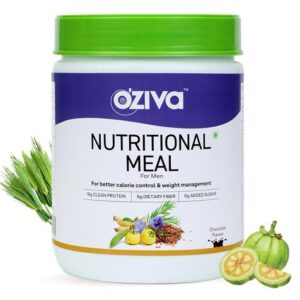
Adequate amount of protein intake is something that is essential to everyone in order to prevent muscle mass, especially as you age. As inevitable as ageing is, it does not only refer to how the skin appears over time. Age process also applies to the changes in body composition, bone health and hormonal changes.
What happens?
The progressive, unavoidable loss of muscle mass with age is known as Sarcopenia. Lack of muscle can also make you more lethargic, increase your chances for type 2 diabetes and add on to weight- from fat making up for lost muscle! Prioritizing on protein intake while engaging in consistent training has a positive impact on muscle growth and its repair; but more than helping you put on mass eating protein helps you maintain your muscle as you age.
Recommended: Changes Women Need to Make Post the age of 40
How can you change this with diet?
Your diet also plays an important role in building muscle mass. Protein is the king of muscle food. The body breaks it down into amino acids, which it uses to build muscle. However, older people often experience a phenomenon called anabolic resistance, which lowers their bodies’ ability to break down and synthesize protein.
Therefore, as with protein, if you are older, you need more. A recent study in the journal Nutrients suggests a daily intake of 1 to 1.3 grams of protein per kg of body weight for older adults who do resistance training. For example, a 79 kg person would need about 79 g to 103 g a day. If possible, divide your protein equally among your daily meals to maximize muscle protein synthesis.
This is a high amount compared with the average diet, but there are many ways to get the extra protein you need. Animal sources (meat, eggs, and milk) are considered the best, as they provide the proper ratios of all the essential amino acids. Yet, you want to stay away from red and processed meat because of high levels of saturated fat and additives. Instead, opt for healthier choices.
Recommended: How to Age Without Losing Muscle
Here are some of the good protein sources that you can choose from:
- Eggs- both yolk and egg whites
- Lean meat: chicken, fish, lean red meat
- Dairy: Milk, paneer, low-fat cheese, curds, yogurt, whey and casein
- Seafood
- Soyabeans, tofu, edamame, soy protein powder
- Kidney beans (rajmah), chickpeas, pea protein, hemp
Add OZIVA Protein & Herbs Shake to Your Diet if your diet is lacking in proteins.
If you want a detailed nutrition consultation, drop us a mail at nutrition@oziva.in or call us on 9769298556 and our experts will help you with your fitness goal
Last modified: December 20, 2017




